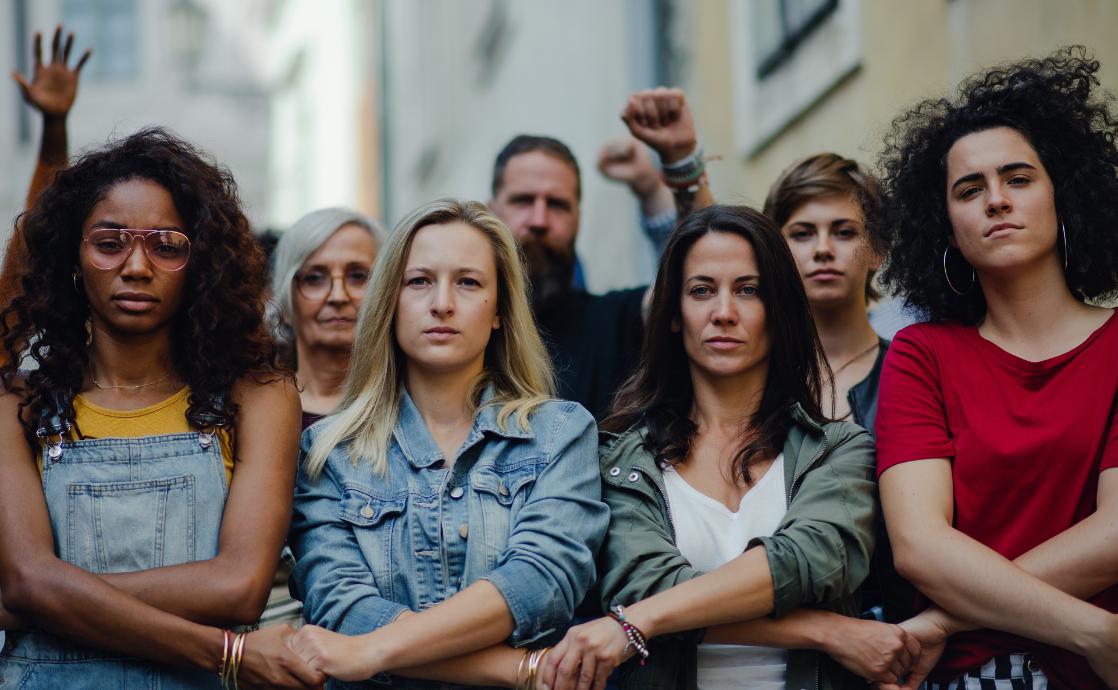In the contemporary landscape, the discourse surrounding women’s rights has intensified, drawing attention to the multifaceted challenges that women face globally. The Bahá’í teachings underscore the importance of gender equality as an essential principle for advancing societal welfare. Within this framework, it becomes imperative to examine the various forms of women’s rights violations that persist and proliferate across different regions and cultures.
The principle of gender equality is foundational within Bahá’í teachings, which assert that the empowerment of women is pivotal in fostering global harmony and prosperity. This tenet is not merely aspirational but is reinforced by the critical examination of current global conditions. As we delve into the myriad forms of violations against women’s rights, it is essential to contextualize these issues within the broader philosophical and ethical framework of the Bahá’í Faith.
One prominent manifestation of women’s rights violations is gender-based violence. The alarming prevalence of domestic abuse, sexual assault, and human trafficking exemplifies a systematic disregard for women’s dignity and autonomy. Such violence not only inflicts immediate harm but also engenders psychological scars that can endure throughout a woman’s lifetime. It is within the Bahá’í perspective that the sanctity of human life demands an unequivocal condemnation of these abhorrent acts. According to Bahá’í teachings, such violations inhibit the development of individuals and communities, underscoring the necessity of establishing robust protective measures and comprehensive support systems for survivors.
Another significant dimension of women’s rights violations is the pervasive disparity in access to education. Globally, millions of girls are denied basic educational opportunities due to socio-economic barriers, cultural norms, and systemic discrimination. The Bahá’í teachings place immense value on education as a catalyst for personal growth and societal advancement. The effective empowerment of women through education not only equips them with essential skills but also enhances their ability to contribute to their communities. Consequently, tackling educational inequities serves as a cornerstone for achieving gender parity and societal progress.
Moreover, economic injustice is a critical area where women’s rights are frequently compromised. Women often find themselves relegated to low-paying, informal employment, lacking access to fair wages and job security. The Bahá’í Faith emphasizes the importance of economic empowerment in the quest for gender equality. Creating equitable economic opportunities allows women to thrive and assert their agency within society, reshaping traditional power dynamics. By advocating for policies that promote women’s participation in the workforce, societies can harness the potential of half their population, driving economic growth and innovation.
Additionally, reproductive rights represent another contentious area of women’s rights that is subject to widespread violation. Many women face significant barriers to accessing healthcare, including family planning and maternal services. In various regions, restrictive laws and societal stigmas further inhibit women’s autonomy over their bodies. The Bahá’í perspective holds that every individual has the right to make informed choices regarding their health and well-being. Addressing these reproductive rights issues not only supports women’s health but also fosters informed and empowered societies.
Political representation constitutes yet another critical domain in which women’s rights remain threatened. Despite incremental progress, women are still severely underrepresented in political spheres globally. This lack of representation results in the perpetuation of policies that fail to address the unique challenges women face. The Bahá’í teachings advocate for the inclusion of women in decision-making processes as a fundamental principle of social justice. Ensuring that women’s voices are integral to civic discourse strengthens democratic principles and leads to more equitable governance.
Complementarily, it is essential to address the intersectionality of women’s rights issues. The experiences of women are not monolithic; factors such as race, class, and cultural background significantly shape their realities. The Bahá’í teachings encourage an inclusive approach that recognizes and celebrates diversity. By understanding the unique challenges faced by various groups, targeted interventions can be implemented to support marginalized women effectively. Such an intersectional analysis is critical in crafting comprehensive strategies to combat women’s rights violations.
The phenomenon of social media has emerged as a powerful tool in the advocacy for women’s rights. Digital platforms facilitate awareness-raising campaigns, allowing for the amplification of marginalized voices. While these platforms have the potential to promote discourse and mobilization, they also present challenges, such as the dissemination of misinformation and the perpetuation of harmful stereotypes. Bahá’í teachings advocate for a responsible use of technology that aligns with ethical principles, promoting truthfulness and the upliftment of humanity.
Addressing the surge in women’s rights violations globally necessitates a concerted effort from individuals, communities, and governments. Responsive policies, inclusive representation, and comprehensive educational initiatives are imperative in mitigating these violations. The Bahá’í teachings illuminate a path toward a more equitable future, emphasizing that the empowerment of women is not merely a humanitarian concern but a prerequisite for the flourishing of all humanity.
In conclusion, the Bahá’í perspective on women’s rights calls for a holistic approach to eradicate the myriad forms of violations faced by women around the world. By fostering a culture of respect, education, and equality, societies can transition from mere acknowledgment of these issues to actionable change. The adoption of these principles not only enriches individual lives but also contributes to the realization of a just and peaceful world.
